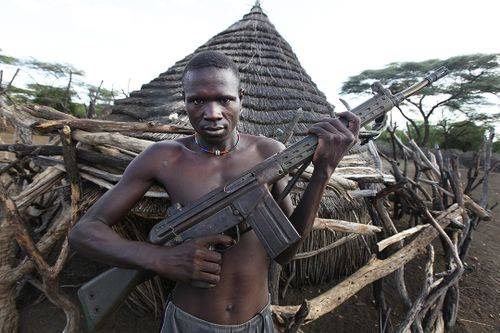Two Years of Devastation: Sudan's War Claims Thousands and Displaces Millions
April 2025 will mark the second anniversary of the start of Sudan's brutal internal conflict, a war that has further plunged the nation into humanitarian crisis and instability. Clashes between the Sudanese Armed Forces (SAF) and the paramilitary Rapid Support Forces (RSF) have devastated the country since April 15, 2023, resulting in the deaths of thousands and the displacement of millions. What began as a struggle for control has descended into one of the world's worst humanitarian crises with no solution in sight.
The clashes erupted following weeks of tensions over security reform and the RSF's integration into the national army. Those tensions, rooted in long-standing rivalries among Sudan's top military leaders—General Abdel Fattah al-Burhan of the SAF and General Mohamed Hamdan Dagalo (also known as Hemedti) of the RSF—erupted into full-blown conflict. The violence quickly spilled across Khartoum, the capital, and other regions like Darfur, Kordofan, and the eastern parts of the country.
Over 15,000 have died since the fighting began, the United Nations estimates, though unofficial reports put the figure far higher. The violence has been particularly devastating in Darfur, where ethnically driven violence has revived memories of the genocidal violence of the early 2000s. Entire communities have been wiped out, and mass graves have been discovered at several sites. Human rights organizations have documented widespread atrocities, including extrajudicial executions, sexual violence, and the deliberate targeting of civilian infrastructure.
The humanitarian cost of the conflict has been catastrophic. The UN estimates that over 8.5 million people have been displaced—some to neighboring Chad, Egypt, and South Sudan, while others remain trapped in conflict zones. Sudan is currently faced with one of the world's largest internal displacement crises. Food insecurity has also worsened significantly, with starvation looming across much of the country. Health services have collapsed, and diseases like cholera and measles are spreading quickly through overcrowded camps with inadequate sanitation.
Despite various ceasefire deals brokered by international mediators like the African Union, United Nations, and the Intergovernmental Authority on Development (IGAD), sustainable peace is yet to be realized. Each peace deal has been short-lived, with some broken within hours. The peace process is also made complex by the involvement of external actors, with some regional powers accused of supplying weapons or backing rival sides for strategic interest.
The economic consequences are no less dire. Sudan's economy, already undermined by years of sanctions, mismanagement, and isolation, has in effect collapsed. Inflation is rampant, and the banking system is at a standstill. Millions are unable to access salaries, savings, or basic services. Schools and universities are shut, pushing an entire generation of Sudanese youth further away from education and stability.
The global reaction has been condemned as weak and late. While humanitarian organizations have rushed to deploy, access has been a significant challenge due to insecurity and bureaucratic restrictions. Aid workers have even been targeted by violence, which also detracted from relief activities. Funding shortfalls have under-resourced major programs, and the UN has called for billions of dollars in emergency aid.
As the war enters its third year, Sudanese citizens are bearing the brunt of a conflict driven by power and ambition. As institutions break down and civil society is strained, the prospects for peace and reconstruction appear bleak. However, grassroots peace initiatives and local responses continue to offer glimpses of hope, as communities try to reconstruct and support one another in the midst of chaos.
The world cannot afford to divert its attention from Sudan. Sudan stands at the precipice of complete state failure, and if the international community relaxes its pressure, diplomatic engagement, and humanitarian aid, the consequences will extend far beyond its borders—unraveling the region and exacerbating human suffering for decades to come.



No comments yet
Be the first to share your thoughts!